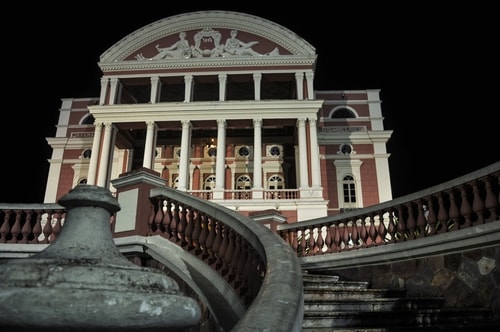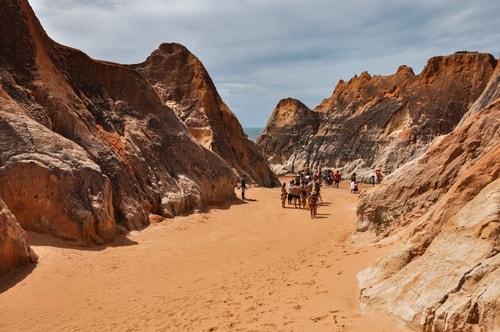GENERAL DESCRIPTION
Brazil, a vast South American country, stretches from the Amazon Basin in the north to vineyards and the massive Iguaçu Falls in the south. Rio de Janeiro, symbolized by its 38m Christ the Redeemer statue atop Mount Corcovado, is famed for its busy Copacabana and Ipanema beaches as well as its enormous, raucous Carnaval festival, featuring flamboyant costumes and samba music and dance.

COUNTRY FACTS
POPULATION
184,184,000
RELIGION
Roman Catholic
CAPITAL
Brasília (3,099,000)
LIFE EXPECTANCY
69
GDP PER CAPITA
U.S. $7,600
AREA
8,547,403 square kilometers (3,300,169 square miles)
LANGUAGE
Portuguese
LITERACY PERCENT
86
FABIO'S REVIEW



One of my favorite countries! Locals say that "Deus é Brazileiro" (God is Brazilian), and it is hard to argue: great weather all year, lovely beaches and jungles, fantastic women, large cities for shopping, reasonable cost of life, tons of historical churches, colonial buildings and cobbled streets to explore.
I would actually live there if it wasn't for the high crime rate (and the loudness of the people). I also had a hard time learning Portuguese: I was fluent in Spanish (after a year trekking in Latin America), but couldn’t understand a single word when crossing the Brazilian border! It took me 3 months to get used to the thick accent.
Tourist wise, there is so much to see: my favorite sights were the Amazon jungle (an absolute must-see), the Iguaçu falls, the iconic Rio de Janeiro and the historical center of Salvador de Bahia.
TRAVEL TIPS:
- Concerning flights, most local airlines (TAM, Varick Airlines and Webjet) offer passes which allow you to travel domestically throughout Brazil for a lump sum - as opposed to pay individual tickets. Or, if you are on a budget and don’t have clear travel plans, GOL is the low-cost airline of choice (don’t expect even a glass of water, though).
- For most countries, you do not need to apply in advance for a visa: you can stay 3 months in Brazil, then get out and re-enter for another 3 months.
- Concerning local transportation, the website http://www.buscaonibus.com.br is very thorough, and shows all bus routes nationwide.
- To find a condo, the local real estate portal is https://www.vivareal.com.br/
- Relocation is quite easy: you can open a bank account and finalize other administrative tasks by first obtaining the magical CPF (“Cadastro de Pessoas Físicas”): it is the Brazilian individual taxpayer registry identification, that you can obtain through the branch of “Receita Federal” closest to you (see http://idg.receita.fazenda.gov.br/): you just need cash, passport, local number and address.
- Concerning phones, a SIM card bought in any Brazilian province will work nationwide BUT you will need to add the local area code, if you call people in a different province (even if you are in that province, and they use the same mobile carrier as you). For example, I bought a Brazilian SIM card in Curitiba (TIM brand, carrier code 041). I then travelled to Rio, and was unable to call the impatient yet skillful Fabiana, who also had a 041 TIM number, because by just dialing her number, my phone interpreted it as a Curitiba number: I understood after much cursing that I should dial the city area code (for Rio, 21) BETWEEN the TIM code and the recipient number… so 041-21-xxxxxxx.
LOCATIONS EXPERIENCED
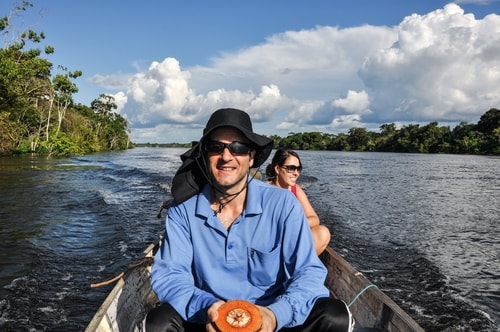
AMAZON JUNGLE
The Amazon rainforest, covering much of northwestern Brazil and extending into Colombia, Peru and other South American countries, is the world’s largest tropical rainforest, famed for its biodiversity. It’s crisscrossed by thousands of rivers, including the powerful Amazon. River towns, with 19th-century architecture from rubber-boom days, include Brazil’s Manaus and Belém and Peru’s Iquitos and Puerto Maldonado.
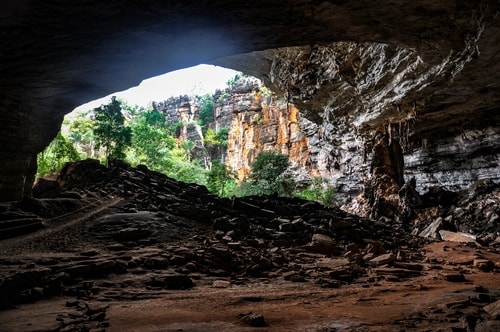
CHAPADA DIAMANTINA
Chapada Diamantina (Portuguese for the "Diamond Plateau") is a region of Bahia state, in the Northeast of Brazil. The breathtaking landscape, its huge canyons with rivers of brownish waters, the high altitude grasslands, known locally as Gerais, innumerous waterfalls and a great extent of trails, makes it one of the best destinations in the country for the practice of outdoor activities.
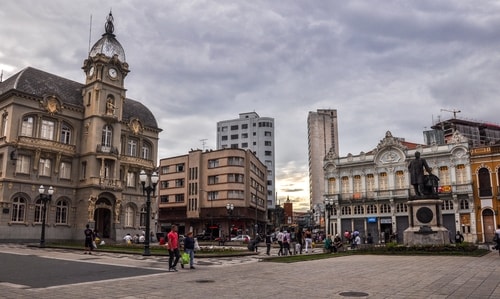
CURITIBA
Curitiba is the capital of the southern Brazilian state of Paraná. Notable skyline features include the Panoramic Tower, with an observatory on top. Known as a cultural center, Curitiba is home to a number of performance venues, including the Wire Opera House, a structure of tubular steel with a transparent roof, and the huge Guaíra Theater, with diverse programs.
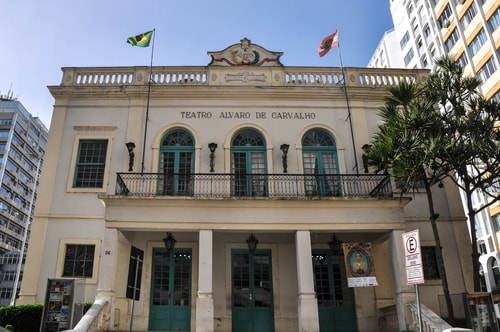
FLORIANOPOLIS
Florianópolis, the capital of southern Brazil’s Santa Catarina state, is made up mostly of 54km-long Santa Catarina Island. It's famous for its beaches, including popular resort areas such as Praia dos Ingleses at the island's northern tip. Its Lagoa da Conceição, a saltwater lagoon, is popular for windsurfing and boating. The Pedro Ivo Campus Bridge connects the island to a mainland commercial district.
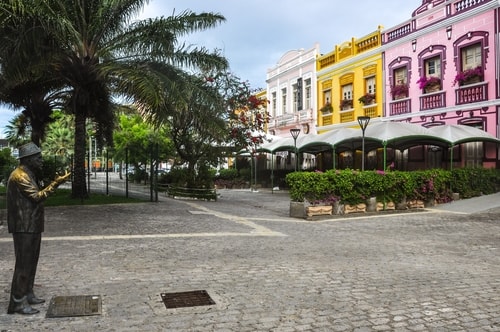
FORTALEZA
Fortaleza is the capital of the northeastern Brazilian state of Ceará. It is known for its beaches, which are punctuated by red cliffs, palm trees, dunes and lagoons. Fortaleza’s long-standing folkloric traditions are presented in dance performances at the art nouveau José de Alencar Theater, open since 1910. Another architectural highlight is the neo-Gothic Catedral Metropolitana.

IGUAZU FALLS (PUERTO IGUAZU)
The Iguazu Falls (a.k.a. Iguazú Falls, Iguassu Falls, or Iguaçu Falls) are waterfalls of the Iguazu River on the border of the Argentine province of Misiones and the Brazilian state of Paraná. They are the largest waterfalls system in the world. The falls divide the river into the upper and lower Iguazu.
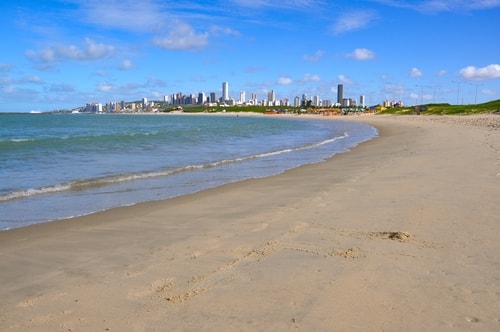
NATAL
Natal is the capital city of the state of Rio Grande do Norte, on Brazil's northeastern tip. It's known for its extensive coastal sand dunes and star-shaped Forte dos Reis Magos, a 16th-century Portuguese fortress at the mouth of the Potengi River. North across the river, Genipabu is an area of towering dunes with a freshwater lagoon. The Via Costeira highway links a 15km stretch of beaches south of the fort.
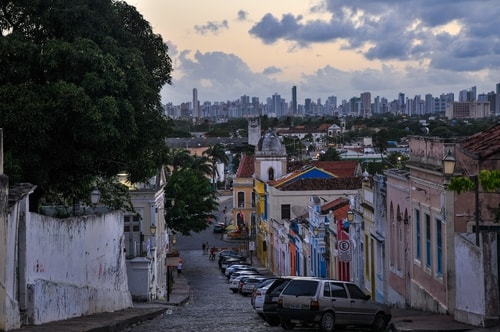
OLINDA
Olinda is a colonial town on Brazil’s northeast coast, near the city of Recife. Founded in 1535 by the Portuguese, it’s built on steep hillsides and distinguished by its 18th-century architecture, baroque churches, convents, monasteries and brightly painted houses. Originally a center for the sugarcane industry, it’s now known as an artists’ colony, with many galleries, workshops and museums.
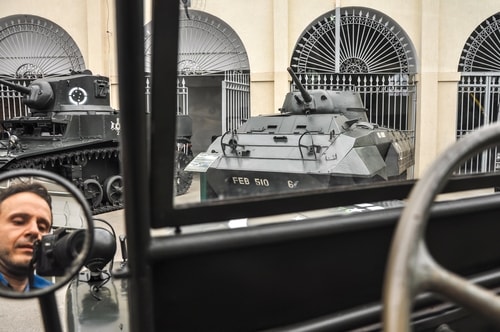
PORTO ALEGRE
Porto Alegre is the capital city of the state of Rio Grande do Sul, in southern Brazil. On the main square, Praça Marechal Deodoro, is the Renaissance-style Metropolitan Cathedral, with religious murals on the outside. The neoclassical Piratini Palace houses the state government. The 19th-century São Pedro Theater is nearby. The city is known as a gateway to the tall canyons of Aparados da Serra National Park.
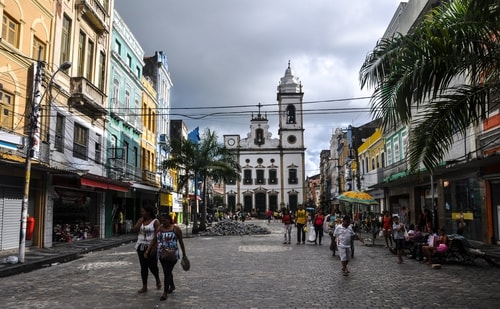
RECIFE
Recife, the capital of Brazil’s northeastern state of Pernambuco, is distinguished by its many rivers, bridges, islets and peninsulas. Recife Antigo, on its own island by the harbor, is the historic old town center dating to the 16th century. To its south, popular Boa Viagem Beach is sheltered by reefs and lined by tall apartment blocks, modern hotels and restaurants.
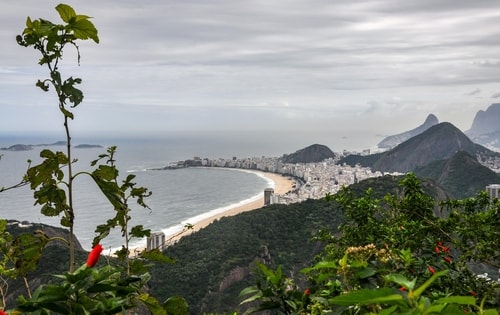
RIO DE JANEIRO
Rio de Janeiro is a huge seaside city in Brazil, famed for its Copacabana and Ipanema beaches, the 38m-high Christ the Redeemer statue atop Mount Corcovado and for Sugarloaf Mountain, a granite peak with cable cars to its summit. The city is also known for its sprawling favelas (shanty towns). Its raucous Carnaval festival, featuring flamboyant costumes and samba dancers, is considered the world’s largest.
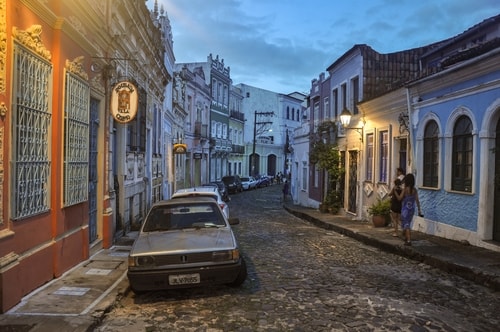
SALVADOR DE BAHIA
Salvador, the capital of Brazil’s northeastern state of Bahia, is known for its Portuguese colonial architecture, Afro-Brazilian culture and a tropical coastline. The Pelourinho neighborhood is its historic heart, with cobblestone alleys opening onto large squares, colorful buildings and baroque churches such as São Francisco, featuring gilt woodwork.
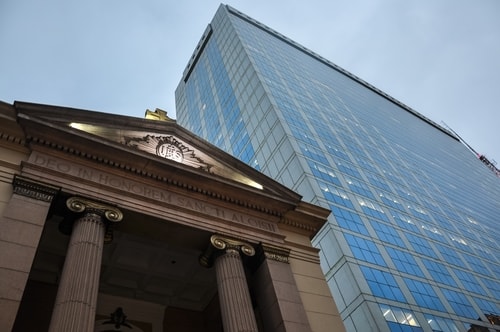
SAO PAULO
São Paulo, Brazil’s vibrant financial center, is among the world's most populous cities, with numerous cultural institutions and a rich architectural tradition. Its iconic buildings range from its neo-Gothic cathedral and the 1929 Martinelli skyscraper to modernist architect Oscar Niemeyer’s curvy Edifício Copan. The colonial-style Pátio do Colégio church marks where Jesuit priests founded the city in 1554.
AMAZON JUNGLE

The Amazon rainforest, covering much of northwestern Brazil and extending into Colombia, Peru and other South American countries, is the world’s largest tropical rainforest, famed for its biodiversity. It’s crisscrossed by thousands of rivers, including the powerful Amazon. River towns, with 19th-century architecture from rubber-boom days, include Brazil’s Manaus and Belém and Peru’s Iquitos and Puerto Maldonado.
CHAPADA DIAMANTINA

Chapada Diamantina (Portuguese for the "Diamond Plateau") is a region of Bahia state, in the Northeast of Brazil. The breathtaking landscape, its huge canyons with rivers of brownish waters, the high altitude grasslands, known locally as Gerais, innumerous waterfalls and a great extent of trails, makes it one of the best destinations in the country for the practice of outdoor activities.
CURITIBA

Curitiba is the capital of the southern Brazilian state of Paraná. Notable skyline features include the Panoramic Tower, with an observatory on top. Known as a cultural center, Curitiba is home to a number of performance venues, including the Wire Opera House, a structure of tubular steel with a transparent roof, and the huge Guaíra Theater, with diverse programs.
FLORIANOPOLIS

Florianópolis, the capital of southern Brazil’s Santa Catarina state, is made up mostly of 54km-long Santa Catarina Island. It's famous for its beaches, including popular resort areas such as Praia dos Ingleses at the island's northern tip. Its Lagoa da Conceição, a saltwater lagoon, is popular for windsurfing and boating. The Pedro Ivo Campus Bridge connects the island to a mainland commercial district.
FORTALEZA

Fortaleza is the capital of the northeastern Brazilian state of Ceará. It is known for its beaches, which are punctuated by red cliffs, palm trees, dunes and lagoons. Fortaleza’s long-standing folkloric traditions are presented in dance performances at the art nouveau José de Alencar Theater, open since 1910. Another architectural highlight is the neo-Gothic Catedral Metropolitana.
IGUAZU FALLS (PUERTO IGUAZU)

The Iguazu Falls (a.k.a. Iguazú Falls, Iguassu Falls, or Iguaçu Falls) are waterfalls of the Iguazu River on the border of the Argentine province of Misiones and the Brazilian state of Paraná. They are the largest waterfalls system in the world. The falls divide the river into the upper and lower Iguazu.
NATAL

Natal is the capital city of the state of Rio Grande do Norte, on Brazil's northeastern tip. It's known for its extensive coastal sand dunes and star-shaped Forte dos Reis Magos, a 16th-century Portuguese fortress at the mouth of the Potengi River. North across the river, Genipabu is an area of towering dunes with a freshwater lagoon. The Via Costeira highway links a 15km stretch of beaches south of the fort.
OLINDA

Olinda is a colonial town on Brazil’s northeast coast, near the city of Recife. Founded in 1535 by the Portuguese, it’s built on steep hillsides and distinguished by its 18th-century architecture, baroque churches, convents, monasteries and brightly painted houses. Originally a center for the sugarcane industry, it’s now known as an artists’ colony, with many galleries, workshops and museums.
PORTO ALEGRE

Porto Alegre is the capital city of the state of Rio Grande do Sul, in southern Brazil. On the main square, Praça Marechal Deodoro, is the Renaissance-style Metropolitan Cathedral, with religious murals on the outside. The neoclassical Piratini Palace houses the state government. The 19th-century São Pedro Theater is nearby. The city is known as a gateway to the tall canyons of Aparados da Serra National Park.
RECIFE

Recife, the capital of Brazil’s northeastern state of Pernambuco, is distinguished by its many rivers, bridges, islets and peninsulas. Recife Antigo, on its own island by the harbor, is the historic old town center dating to the 16th century. To its south, popular Boa Viagem Beach is sheltered by reefs and lined by tall apartment blocks, modern hotels and restaurants.
RIO DE JANEIRO

Rio de Janeiro is a huge seaside city in Brazil, famed for its Copacabana and Ipanema beaches, the 38m-high Christ the Redeemer statue atop Mount Corcovado and for Sugarloaf Mountain, a granite peak with cable cars to its summit. The city is also known for its sprawling favelas (shanty towns). Its raucous Carnaval festival, featuring flamboyant costumes and samba dancers, is considered the world’s largest.
SALVADOR DE BAHIA

Salvador, the capital of Brazil’s northeastern state of Bahia, is known for its Portuguese colonial architecture, Afro-Brazilian culture and a tropical coastline. The Pelourinho neighborhood is its historic heart, with cobblestone alleys opening onto large squares, colorful buildings and baroque churches such as São Francisco, featuring gilt woodwork.
SAO PAULO

São Paulo, Brazil’s vibrant financial center, is among the world's most populous cities, with numerous cultural institutions and a rich architectural tradition. Its iconic buildings range from its neo-Gothic cathedral and the 1929 Martinelli skyscraper to modernist architect Oscar Niemeyer’s curvy Edifício Copan. The colonial-style Pátio do Colégio church marks where Jesuit priests founded the city in 1554.
MAP
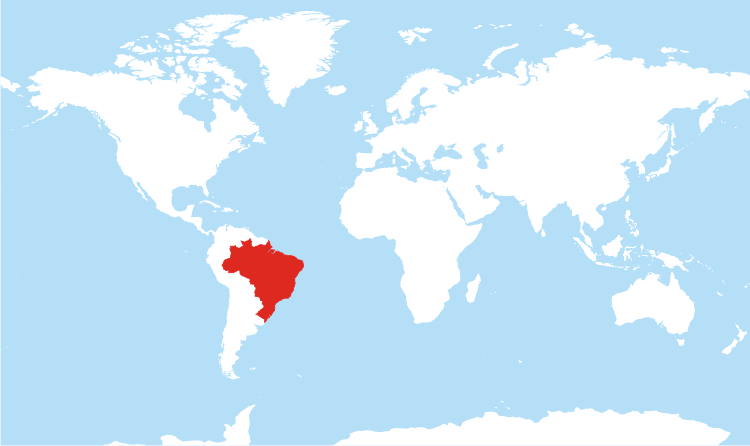
VIDEOS
Check out my YouTube page for all videos!
RESOURCES
This section is currently under construction.

